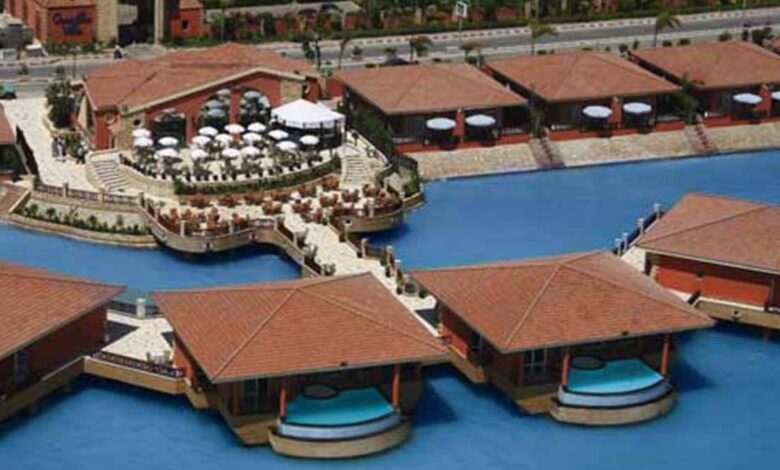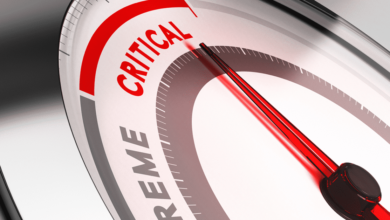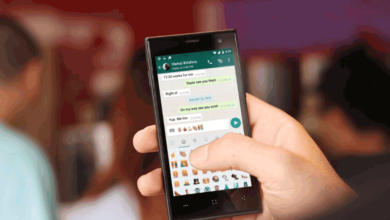Ocean Blue, A Brand Attack Gone Wrong?

As a social media instructor, one of the things that always grab my attention is brand attacks. As it seems, people think attacking a brand on social media is some trend or a road to fame, which means getting more public attention instead of highlighting facts to reach a beneficial conclusion to all parties involved. Analysis and learnings from a brand attack are always a great topic to discuss in any course.
At the end of my former brand attack analysis article “Ayadina – A Brand attack gone wrong,” I wrote the following conclusion:
“A Brand Attack is not a game to play whenever we feel the need to take revenge. It should be based on pure facts without personal opinions and have as many links to resources as possible (Wikipedia style). The only sources we have are a few unconfirmed stories backed up by an angry mob of friends and some fake reviews.”
And, as it turned out recently, another brand attack, #shut_down_ocean_blue, is very similar. A lady is accusing a hotel of having a faulty Jacuzzi, which led to her kids’ Electrocution, then the hotel refused assistance and tried to cover up the story, or so we are led to believe.
On August 25th, a post was published on Facebook titled “Electrocution of 4 kids in Ocean Blue’s Jacuzzi in Marina” and using the hashtag #Shut_Down_Ocean_Blue (IMO a more appropriate hashtag would have been something like #Ocean_Blue_Electrocution or #Marina_Elecrocution), and asking friends to share the post because “the hotel is lying”
I was puzzled; the post starts with a defensive attitude (too defensive, IMO) without explaining the facts.
The first mistake in a brand attack is promoting an opinion “in this case: shutting down Ocean Blue” rather than neutrally stating the facts – this suites the attacking party’s interests alone and should not be how it is played.
Diving more into details, the story itself looked weird, usually in any brand attack, we “the audience” should be clearly given one specific reason for the attack, and the “accuser” should first try to exhaust all traditional means before moving on to social media, So, I went through the hashtag to find more information and found this earlier post with more facts and detailed information.
Going through the comments, I was shocked by this one:
What? Add fake reviews? WHY!!? If you do have a solid case, why the need to resort to such methods? This is one of the problems with brand attacks over social media. It usually revolves around emotional support for a friend and seldom about facts or logic; how could you want to review something you have not experienced first-hand!? It’s a good thing Trip Advisor has a policy against this and removed the review!
On Trip Advisor, the hotel has good reviews, mostly were 4 or 5 stars, with only very few negative ones. I couldn’t find Mr. Mostafa Elwany’s thinking, though! (As he had promised in the previous comment).
Going through the timeline of events to study the case in detail and organize the events chronologically to get a clear view. (PDF for a timeline of events here), I started to realize from my perspective a few puzzling and illogical issues.
“A bit too fast” Media response!?
Allegedly the incident happened at 6:00 pm on August 19th, yet the first mention by the media was at 7:14 pm the same day. Only about 1hr later!? Shouldn’t the victim have been more concerned with complaining to hotel management, filing a report with the police, or going to the hospital to check the health status of the “electrocuted” kids? when and how did the news hear about this? It couldn’t have been a priority or even on their mind that fast unless it was pre-planned?
10min Electrocution?
Seriously? Well, I’m not an electrician, but from what I understand and after checking a few videos over YouTube (including Myth Busters throwing electrical appliances into Jacuzzis), No one can withstand severe Electrocution for that long, especially kids.
This is not a 12v DC battery. This is a 220v AC Jacuzzi motor, so it’s either you’re dead in less than 2sec, or there is nothing at all… it’s not a Hollywood special effects movie!
And this is not my opinion alone; several other fans share my opinion.
Let’s get the kids on TV
Riham Sa3eed – Sabaya Al Kheir? Really? Involve the kids into this and display them to gain affection for your case?
It doesn’t look like a brand attack. Does this look more like a planned PR attack?
More news = more traffic
The media needs to make up their mind. Is it “they closed the hotel” or “they didn’t close the hotel”?
Crisis, PR Stunt, or Organized Brand Attack?
Did it need a Social Media brand attack? If a story is true, then this is a pretty straightforward case! Just go to the hospital, get an official document documenting the injuries, report to the authorities (Police and Ministry of Tourism), and to Consumer Protection Authority, case closed! IMO I would have also spoken with the manager and owner first – why all the media fuss and noise?
Hashtags
If you need to use hashtags, then either build on an already well-established hashtag with a solid fan-base and content, this has a chance to gain traction and go viral, or another option would be to create a generic hashtag that has an opportunity to trend with a large audience, such as #FAIL, #MARINA, #NORTHCOAST, #DISASTER… etc. but neither is the case here.
Media!?
Traditional media doesn’t have the same impact as social media nowadays, as we can see from the charts below showing the effects of Facebook versus other media types.
Usually, reporters would investigate, uncover the truth, reach a conclusion, and then publish their articles in the good old days. But now it seems that most news media outlets run after content, just any content that will sell.”
An accused is considered innocent until proven otherwise) – yet it seems that news today is manipulated and driven by favors, publishing biased stories.
What happened over the media resembles a “Witch hunt,” and they didn’t reach out to the other party to get a different perspective… sharing opinions rather than providing news is misleading!
The usual suspects
Following the media trend, and fueled by a mob of friends who blindly make assumptions based on loyalties and ignore the solid facts and official investigations, we find:
1) the “conspiracy theorists”… the movie-style stereotype of a wealthy businessman working with corrupt authorities, this businessman doesn’t care about maintenance or quality of service…
2) the “know it all” suddenly everyone is an Electricity, Grounding, and Jacuzzi installations expert!, all have been through the “terrible” and “costly” services of Ocean Blue!
It’s a shame how easily emotions, rumors, and headlines drive people, and no one bothers to read or follow logic anymore.
There is no such thing as bad publicity.
The chart below shows the increase in fans before, during, and after the incident. We can see a rise in fans (due to the attack) and a return to the average trend afterward.
It seems that it is business as usual for the hotel, and impact, if any, would be gaining a 10% increase in fans.
Sentiment
Driven by supporters, the negative sentiment did rise, but only for a brief period and not to the extent that would impact the business.
Most people had a neutral attitude awaiting official confirmation and facts from either side.
Another note is that usually, people who have something negative to say are the ones who post and comment. Optimistic fans seldom post or comment unless provoked, so I would assume the actual percentage is less than half (10~15%) for the negative sentiment of overall mentions.
HHotel’sresponse
Professionally, during any crisis over social media, the best practice is to do the following:
- Monitor First
- Have a Plan
- Find out who is responsible?
- Is this crisis or not?
- Take appropriate action
- Let it breathe
- Go to source
- DDon’tfight back
- Go back and review.
In this case, the hotel followed these steps. They took the time to monitor, investigate, analyze then respond. The first official response by the hotel was five days later, which in my opinion, is be a bit too late. But these steps should be fast.
Conclusion
A Brand Attack is not a game to play whenever we want to take revenge. it should be based on pure facts without any personal opinions and have as many links to facts and resources as possible (Wikipedia style) – the only sources we have are a story (without any physical or official proof), a few unconfirmed reports from friends backed up by an angry mob of more friends and some fake reviews.
And unless it is based on facts and affects a large audience segment. It’s just a waste of effort and time, a bubble that will give away to the following significant news that comes around.
The lifetime of this attack was less than two weeks; as we can see from the chart above, emotional brand attacks don’t work anymore; the audience is more thoughtful now. You are claiming those solid facts do not back them up! People outside your circle of friends and supporters will eventually see the past.
The whole concept of attacking a brand is wrong. It should be a platform for giving fans and users direct raw and solid feedback to grow into a healthy win-win partnership between businesses, services, management, and their fans. Fans can become the management’s eyes and ears, leading to a better quality of service.
Last Words
Brands: Please monitor your mentions and keywords; there are many free tools and methods such as Hootsuite and Google Alerts to monitor your brand online. It looks so bad when you realize people are talking about you 3 or 4 days later.
“rand Attackers” If you do not have facts and proof, then please don’t play the emotional card… it will work only for a short period, then fire back on you… don’t mislead or drive people to a conclusion that suits you best. Look at the bigger picture and mutual benefit for all.
If you want public support and interest, then defend and promote public (not personal) interest. If people see (or feel) that you have an individual plan, then the only support you will get is close friends, and without facts to support your cause, the “rand attack”will never grow beyond that small circle.











